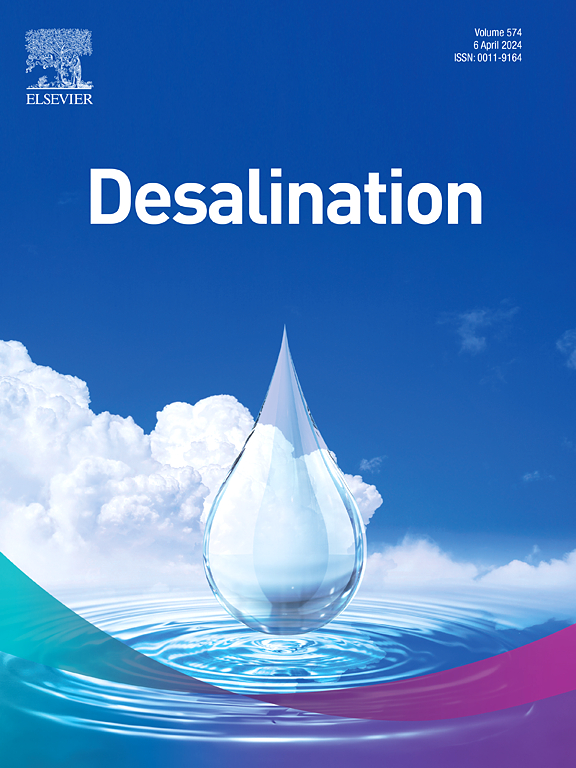Thermal behavior in solar distillation system using experimental and machine learning approach with scaled conjugated gradient algorithm
IF 8.3
1区 工程技术
Q1 ENGINEERING, CHEMICAL
引用次数: 0
Abstract
This study investigates the thermal dynamics of solar stills by combining experimental methods with machine learning techniques. The experimental setup consisted of two single-slope basin solar stills, from which temperature data were collected for the still, water, vapour, and glass surfaces. A machine learning model, specifically an Artificial Neural Network (ANN) using the Scaled Conjugate Gradient algorithm, was used to predict temperature variations throughout the distillation process. The ANN model achieved high prediction accuracy, with Coefficient of Determination (R2) above 0.99 for all temperature components. The study highlights the effectiveness of integrating machine learning into solar distillation systems, providing valuable insights for the design of more efficient technologies. These findings contribute to the understanding of sustainable water production and highlights the significant role of machine learning in optimizing solar distillation. Experimentally, the maximum water temperature reached 58.5 °C, with the highest basin temperature at 61.4 °C. The vapour temperature followed a similar trend, peaking at around 60 °C, demonstrating the efficiency of the evaporation process. The ANN model showed an impressive reduction in prediction errors, with an average relative deviation (ARD%) of <0.07 % and a mean square error (MSE) of 0.001227.
求助全文
约1分钟内获得全文
求助全文
来源期刊

Desalination
工程技术-工程:化工
CiteScore
14.60
自引率
20.20%
发文量
619
审稿时长
41 days
期刊介绍:
Desalination is a scholarly journal that focuses on the field of desalination materials, processes, and associated technologies. It encompasses a wide range of disciplines and aims to publish exceptional papers in this area.
The journal invites submissions that explicitly revolve around water desalting and its applications to various sources such as seawater, groundwater, and wastewater. It particularly encourages research on diverse desalination methods including thermal, membrane, sorption, and hybrid processes.
By providing a platform for innovative studies, Desalination aims to advance the understanding and development of desalination technologies, promoting sustainable solutions for water scarcity challenges.
 求助内容:
求助内容: 应助结果提醒方式:
应助结果提醒方式:


